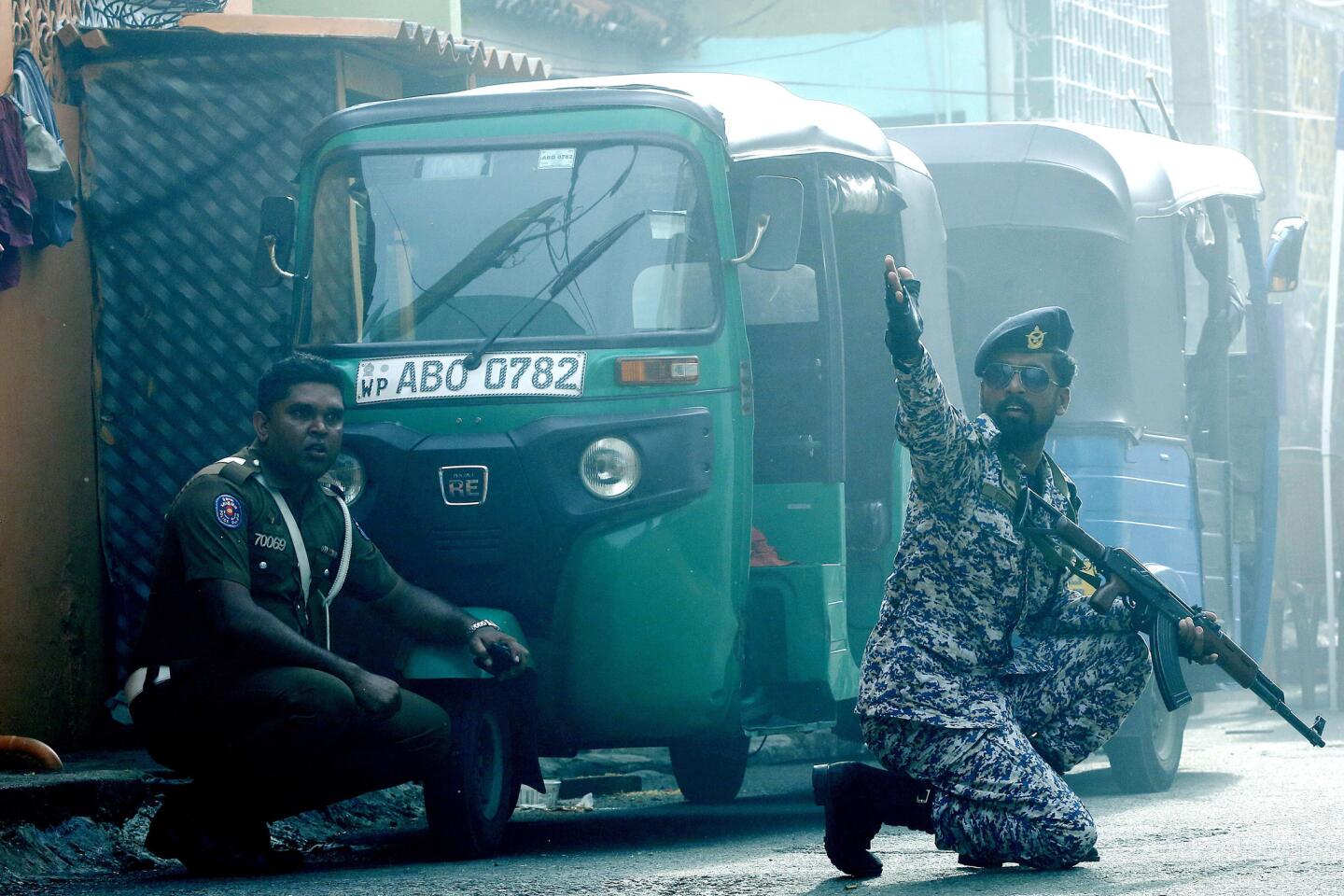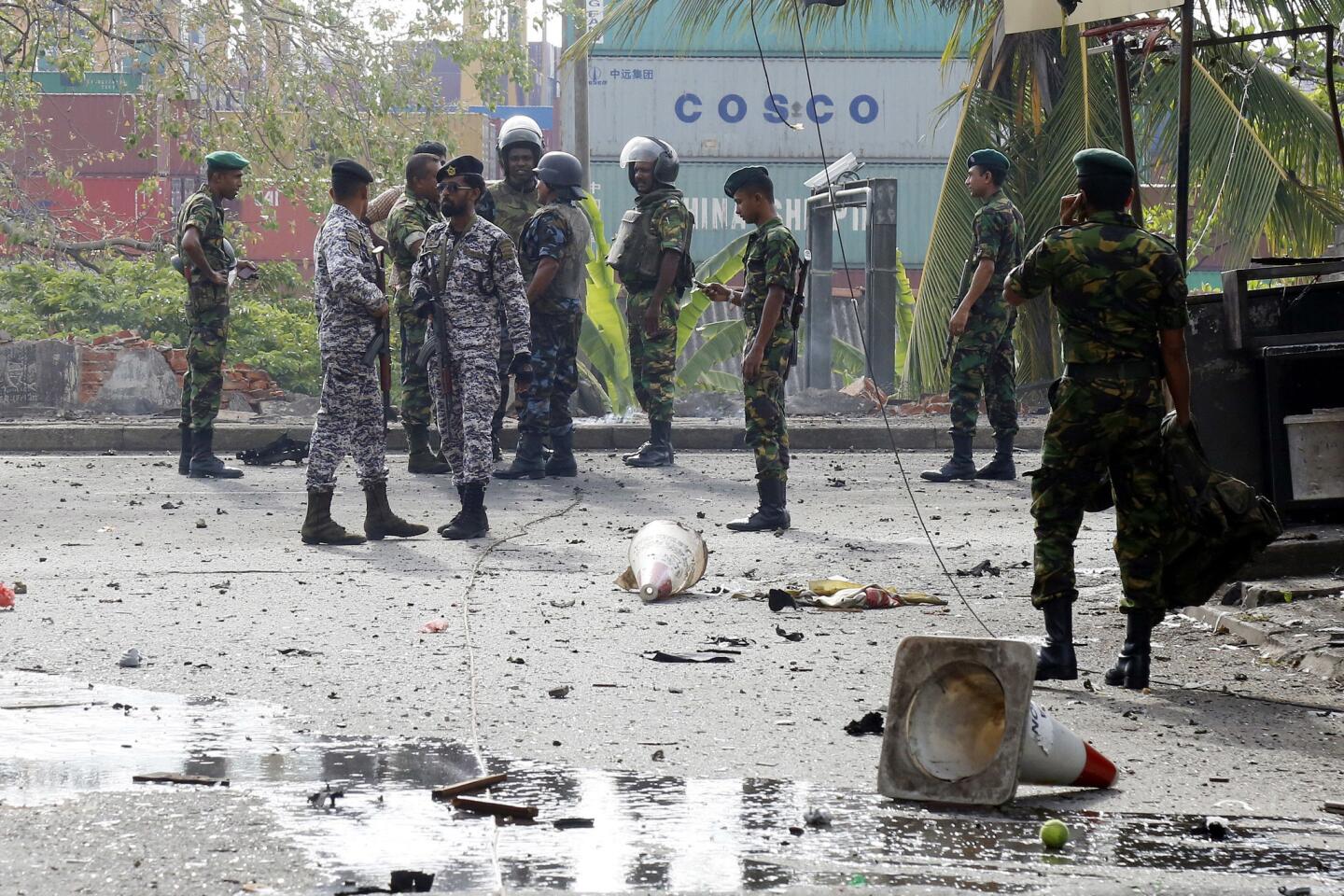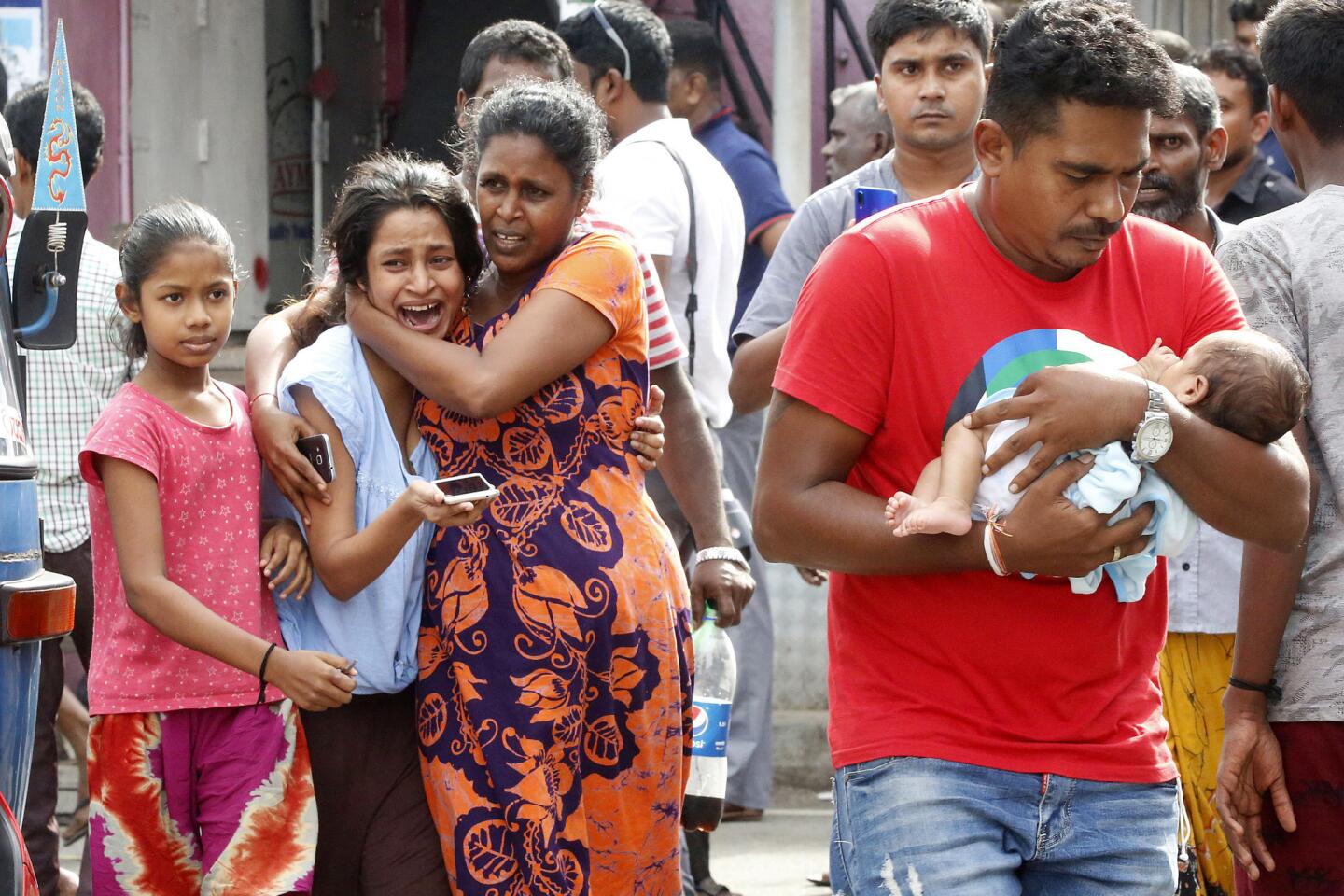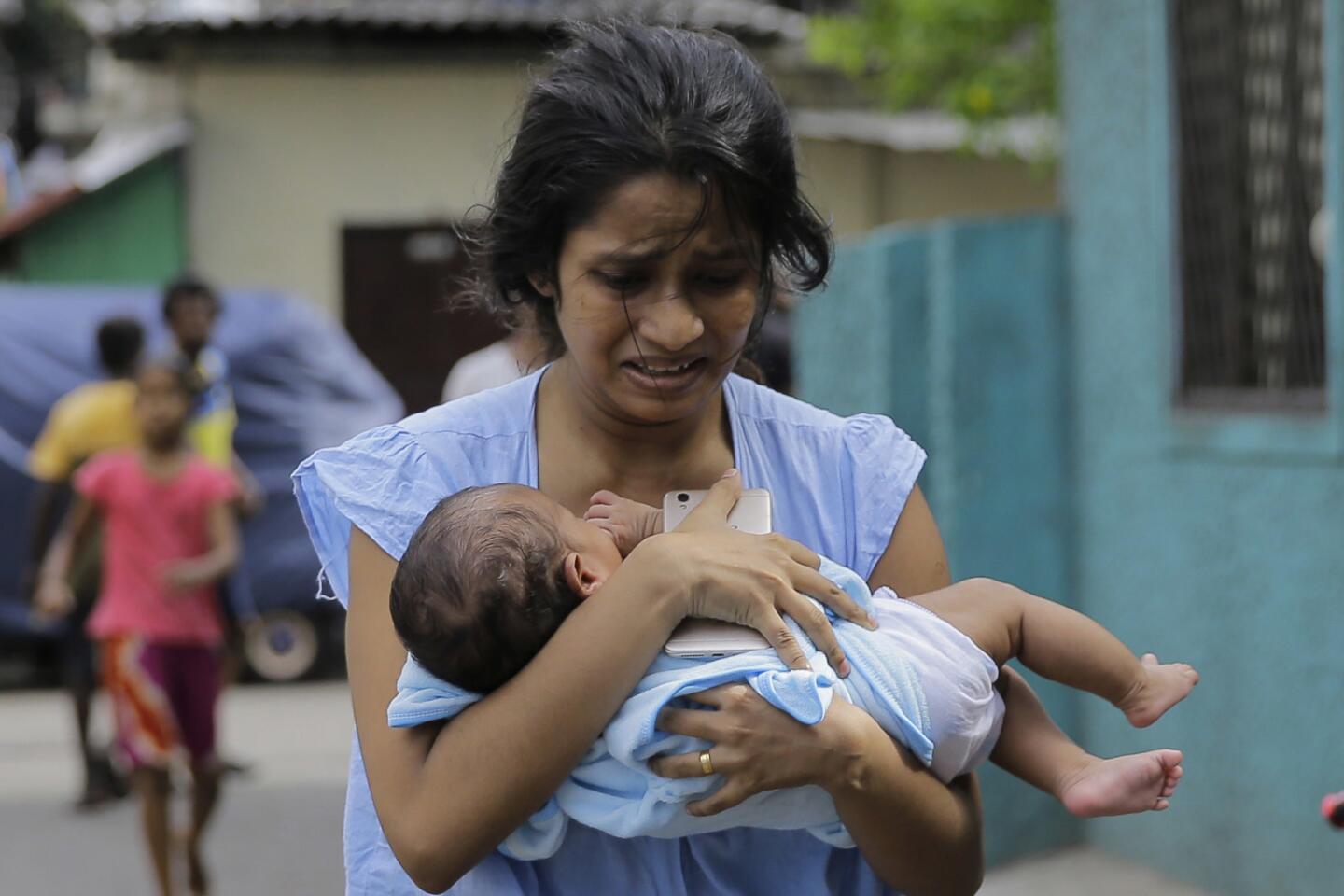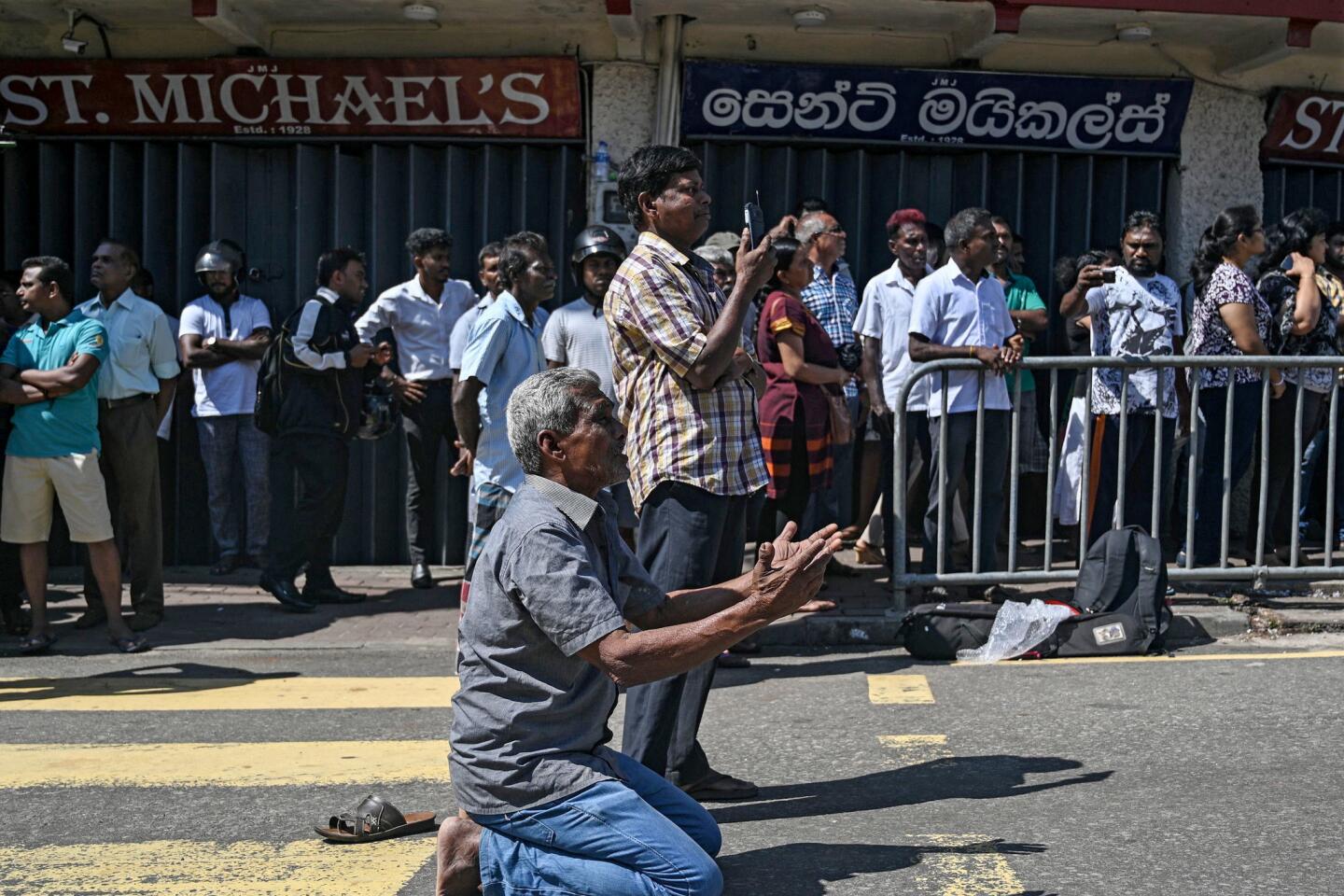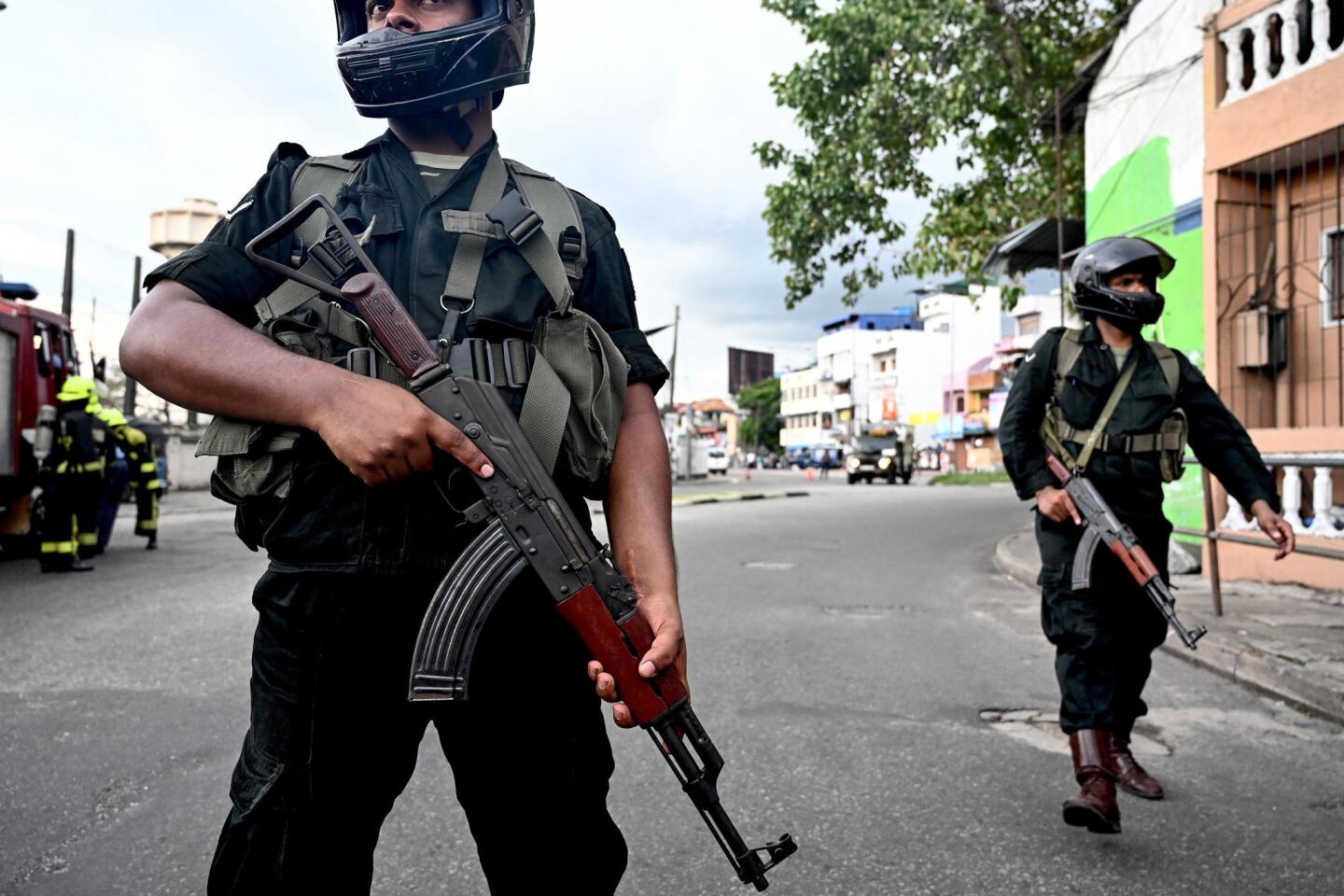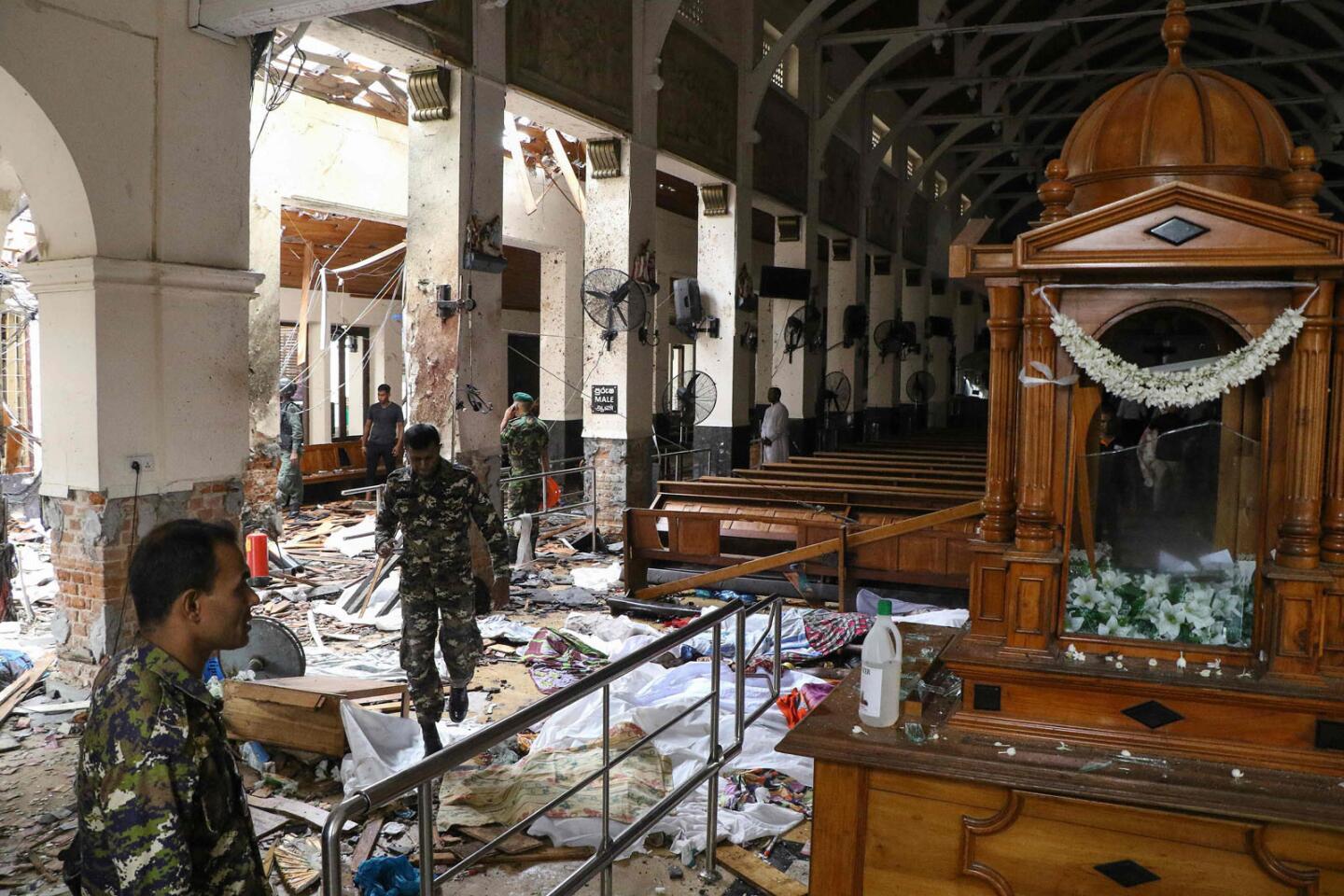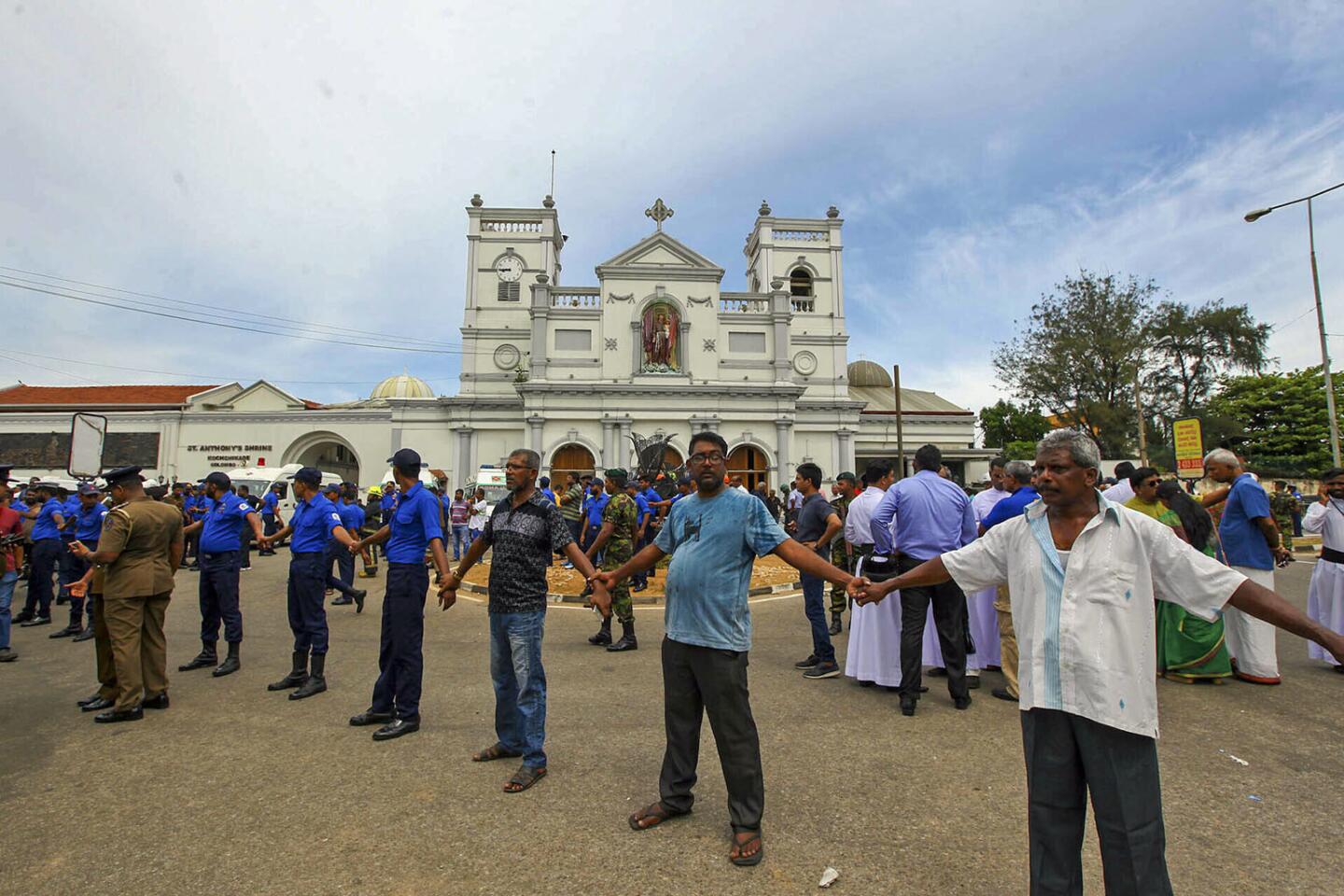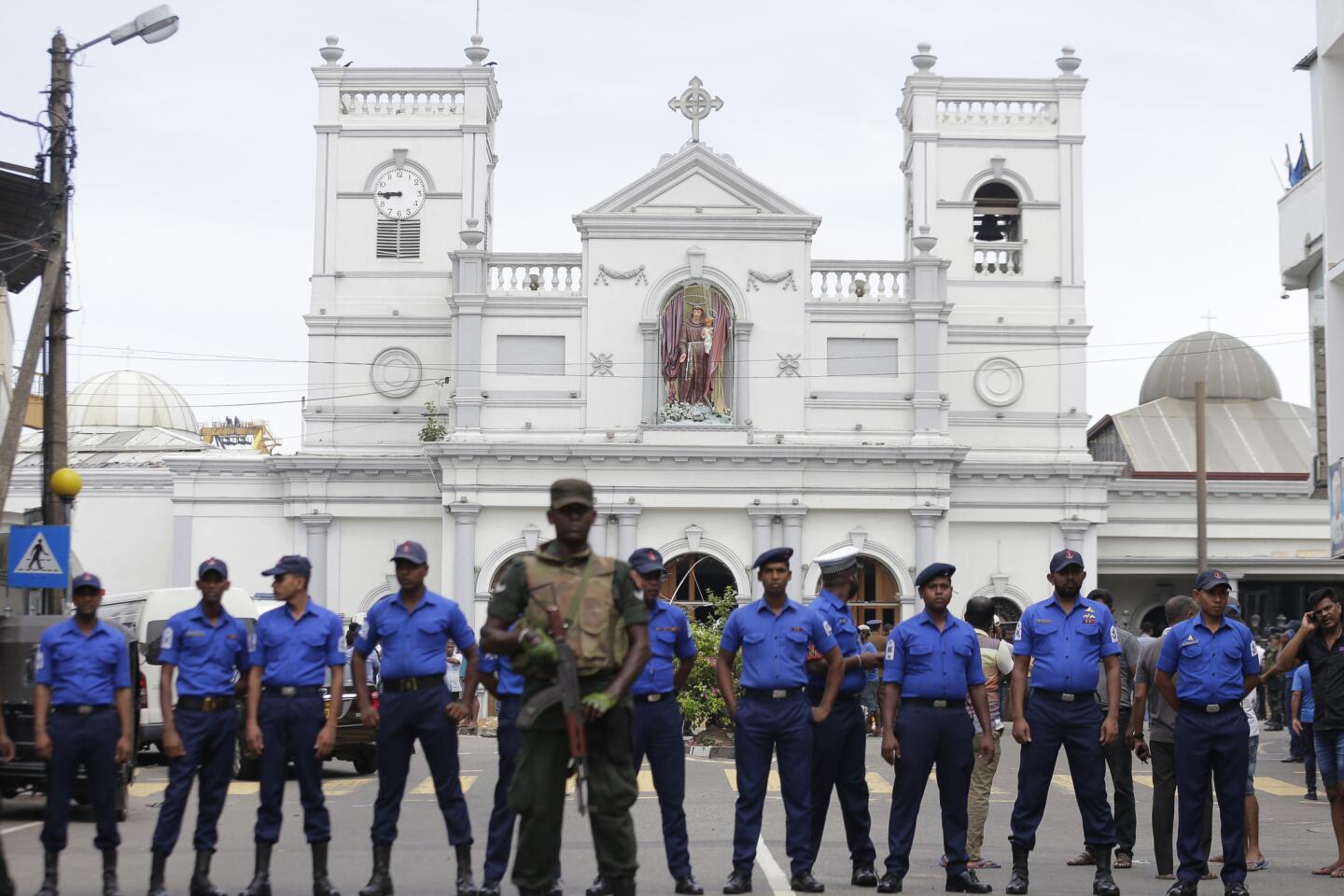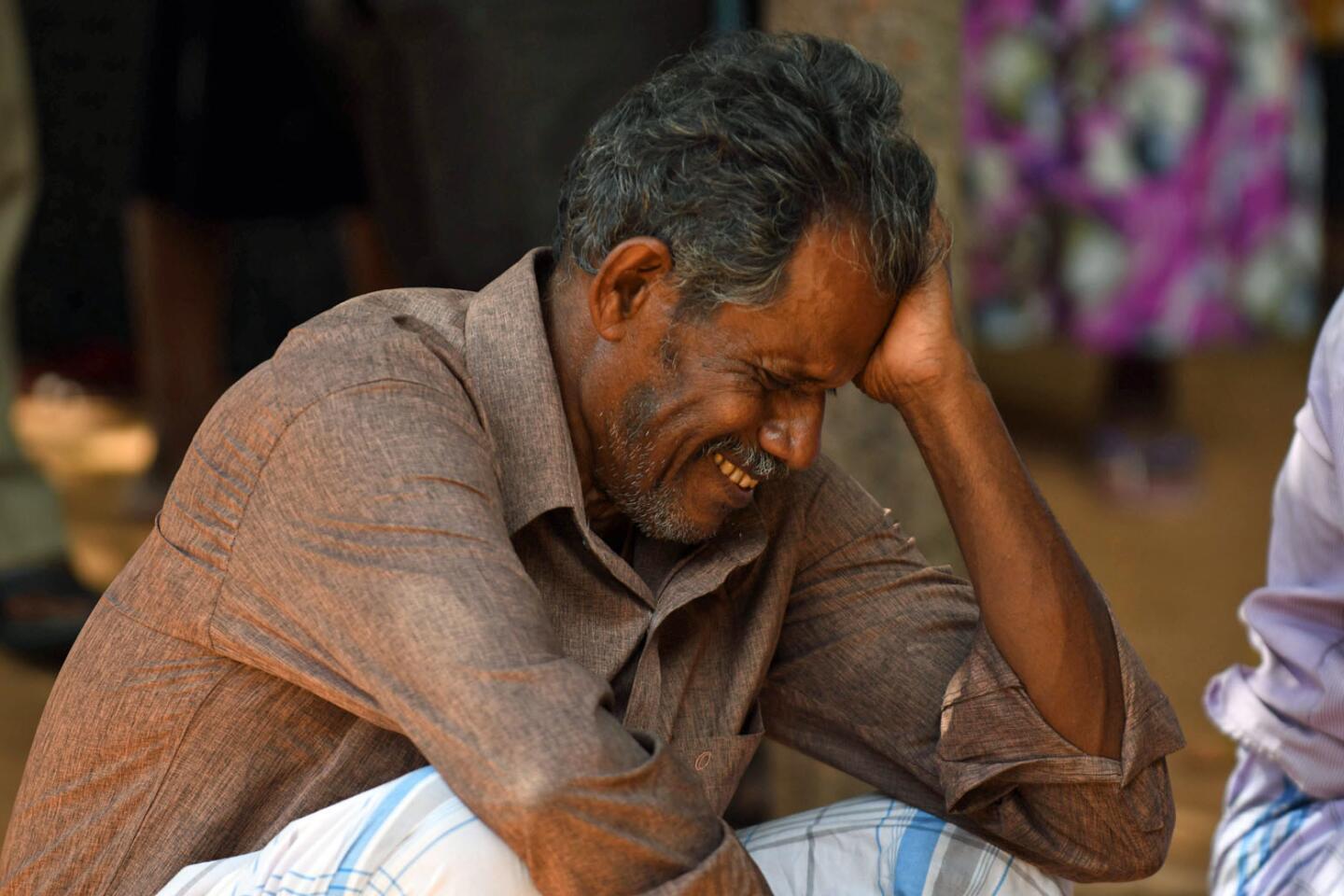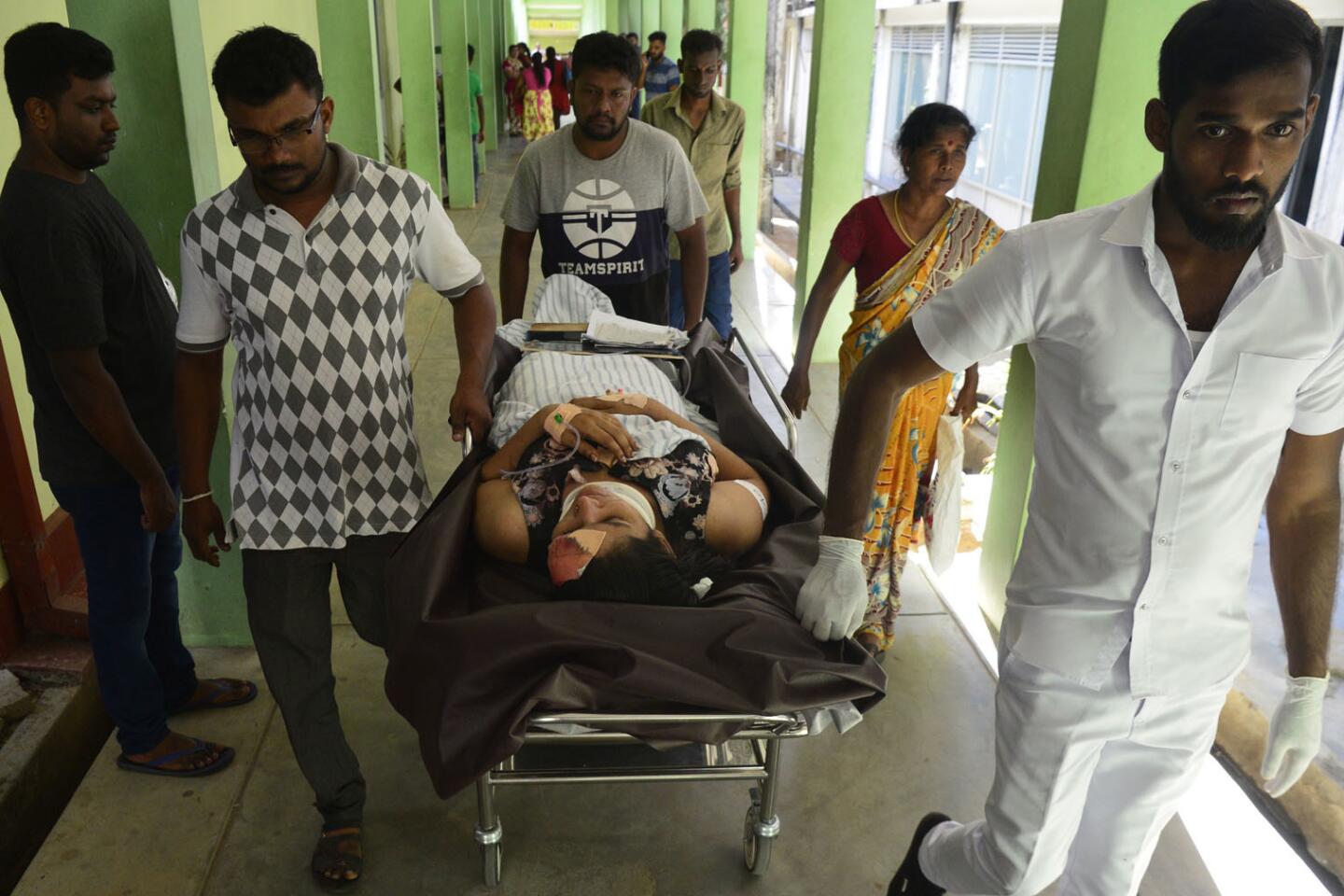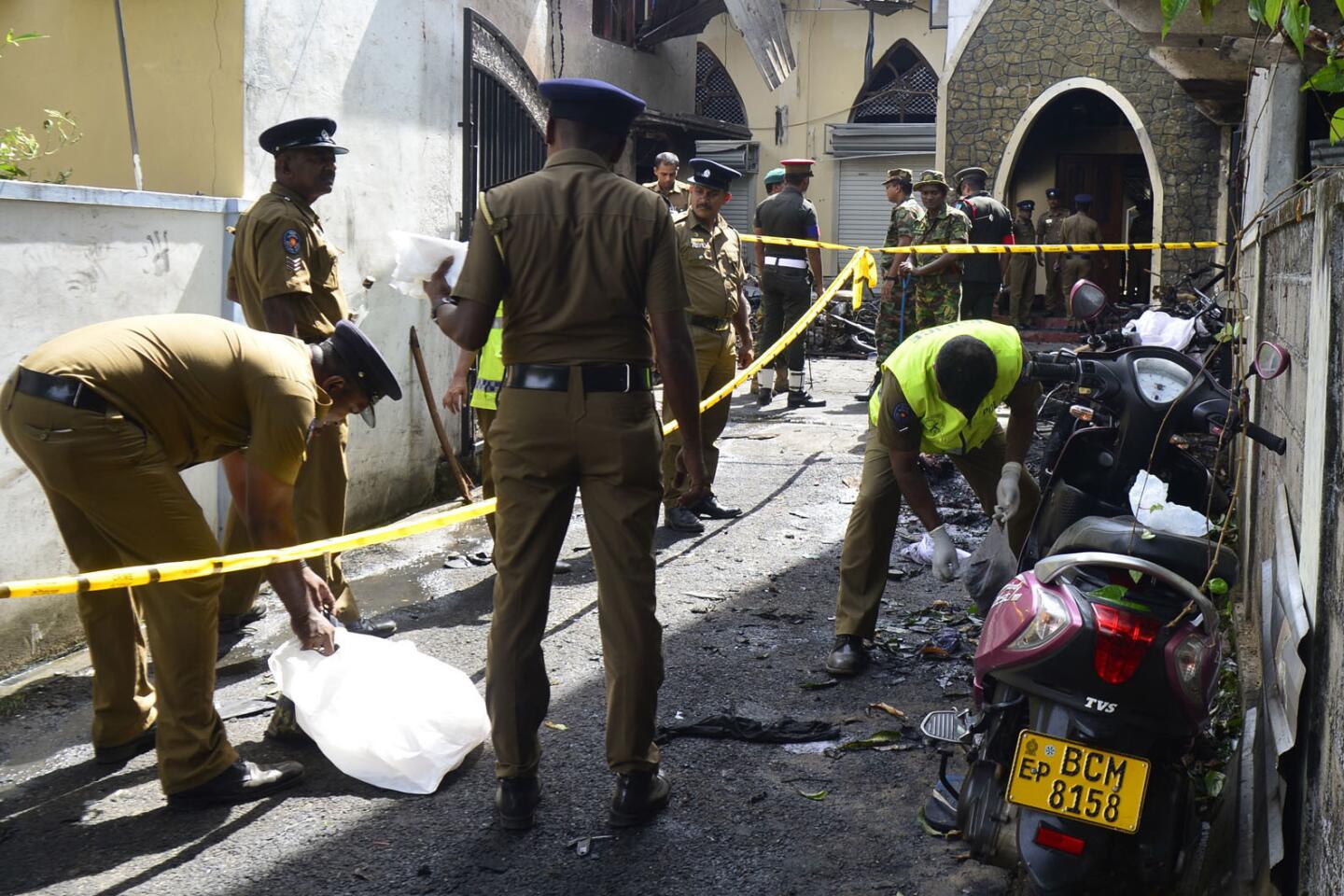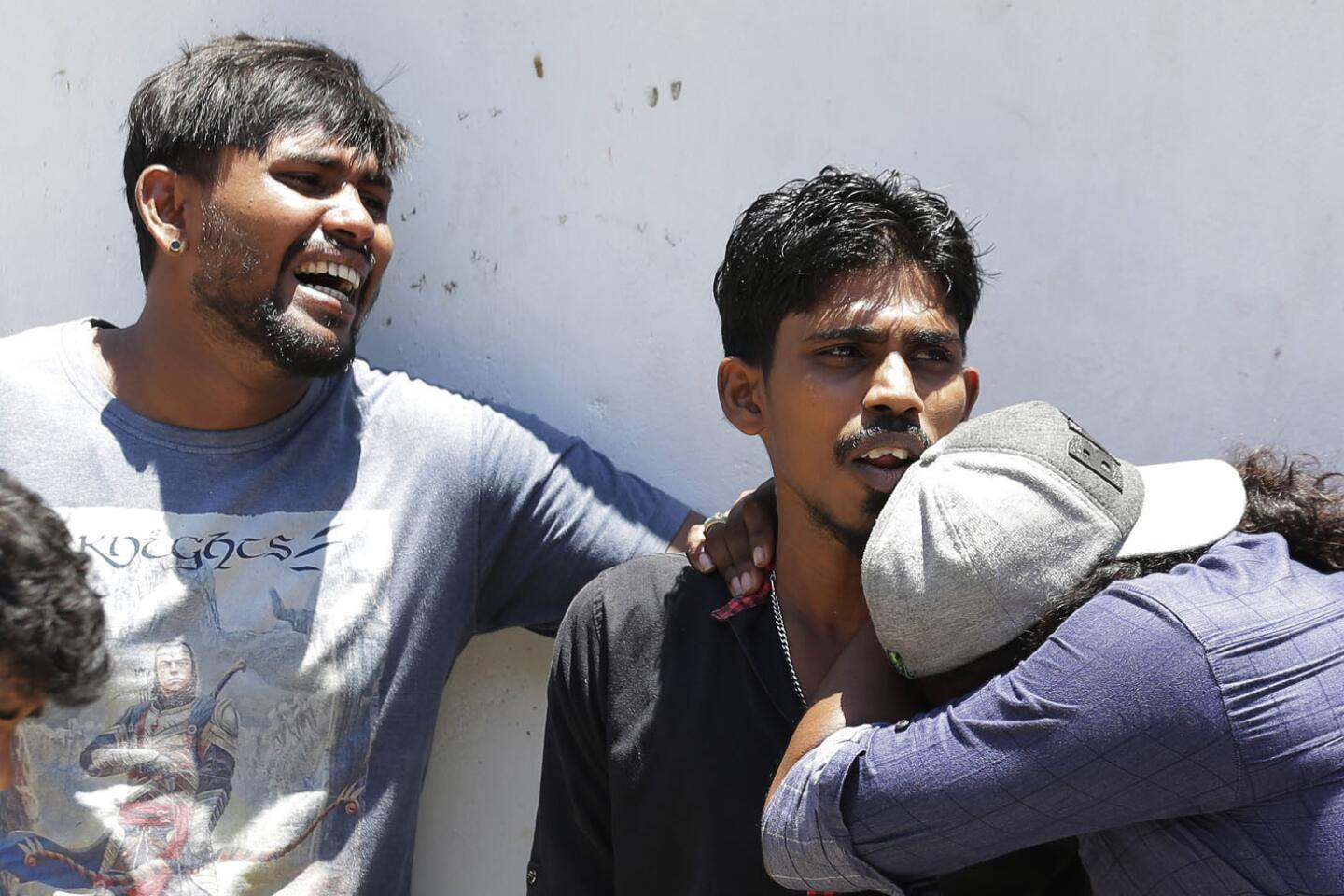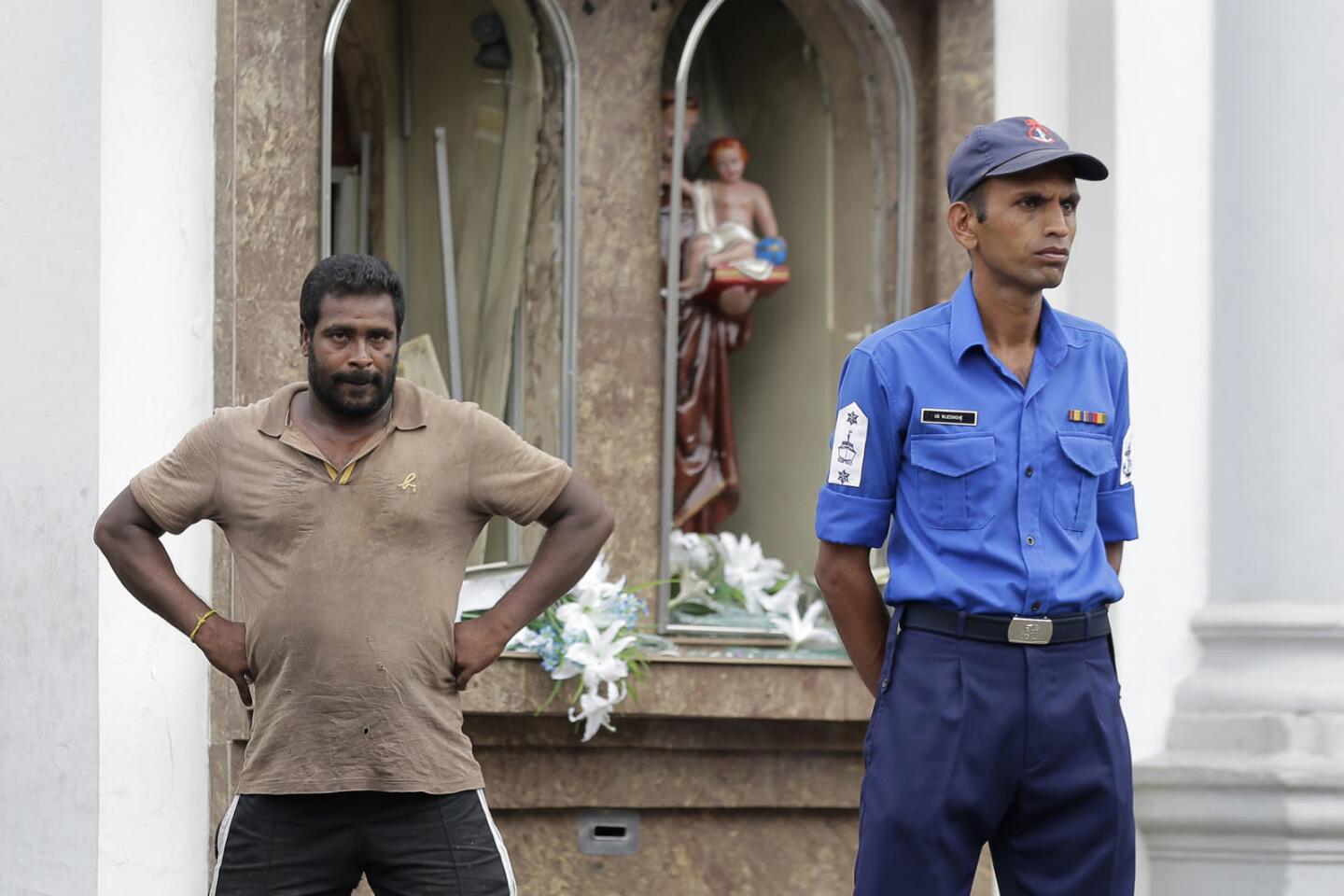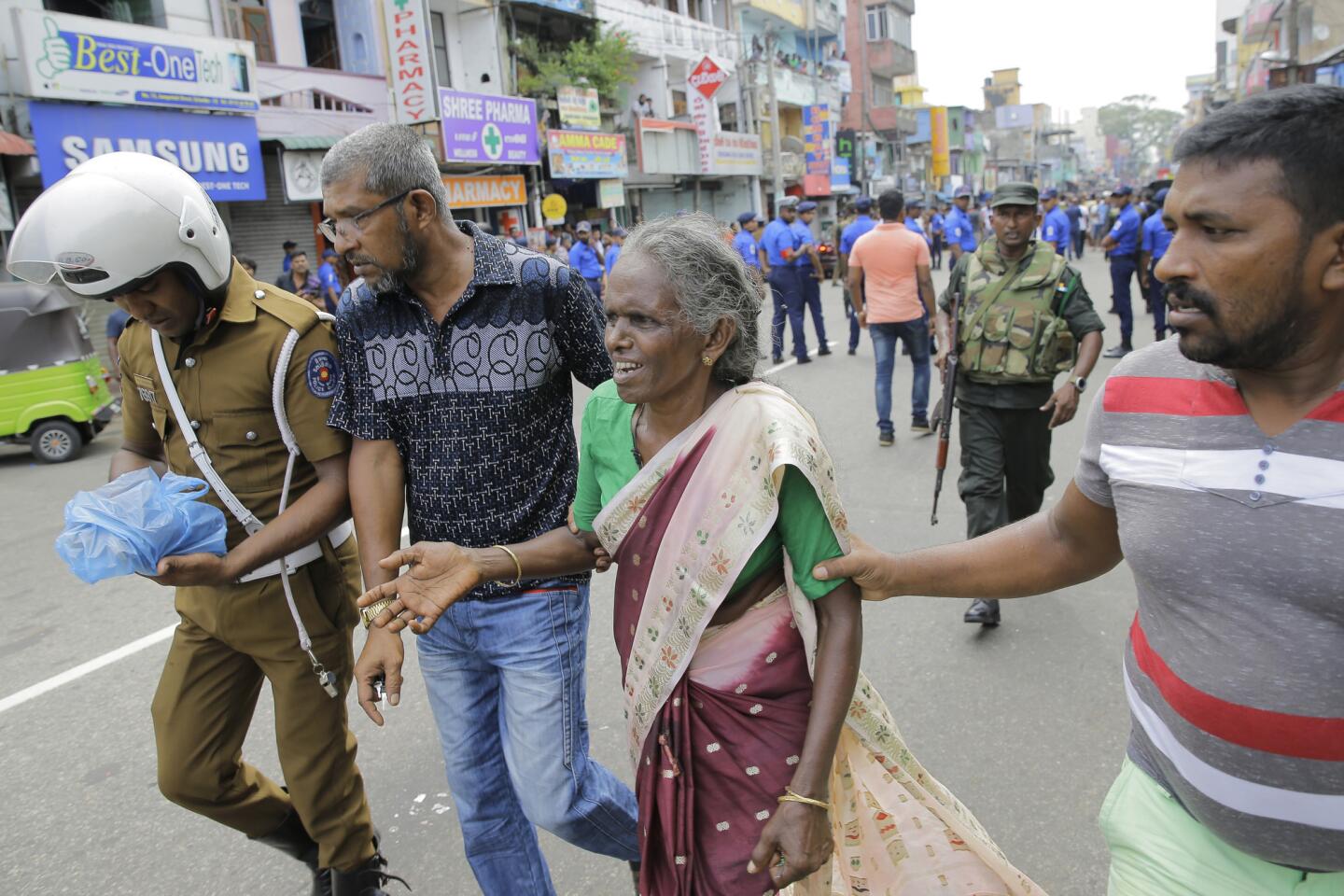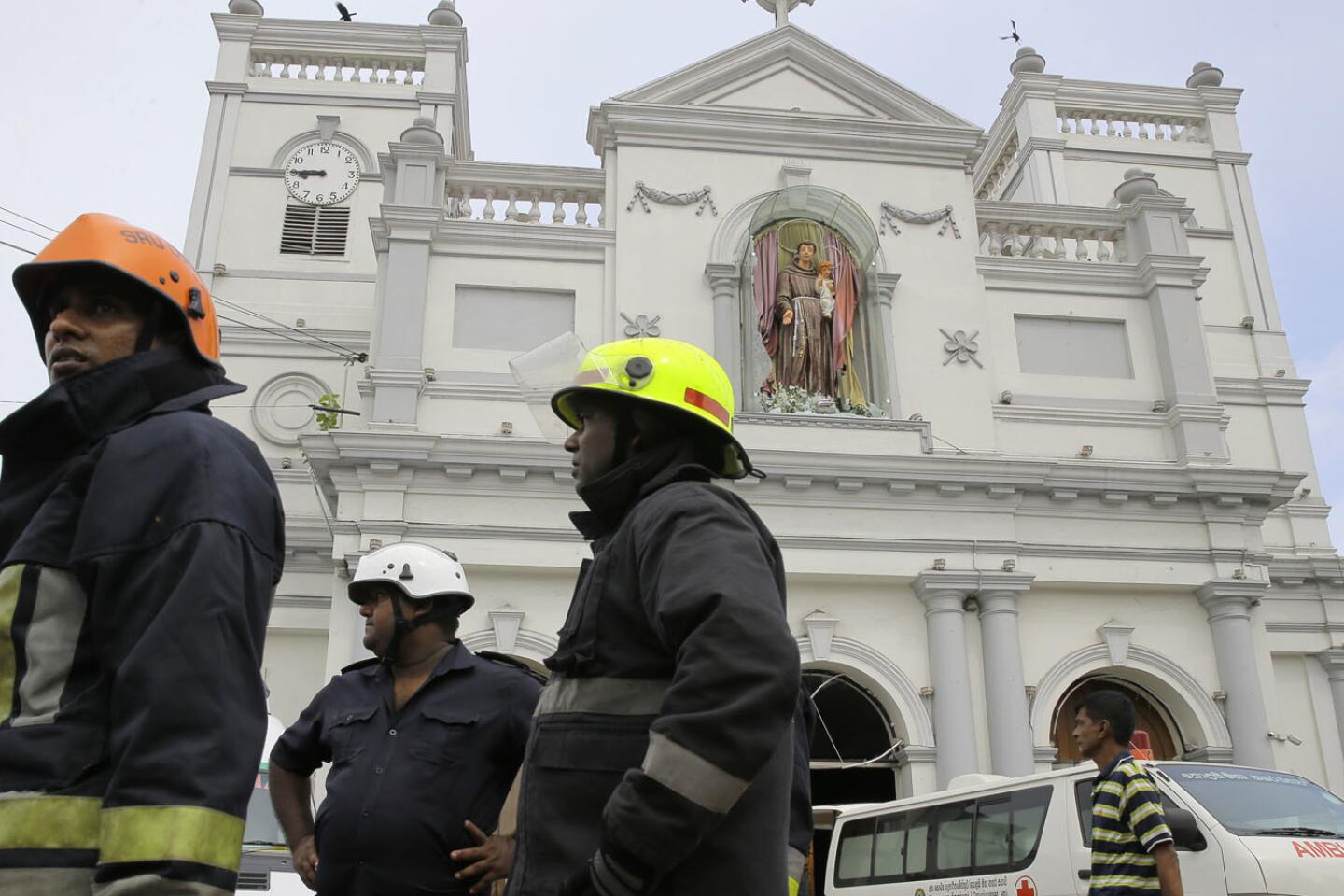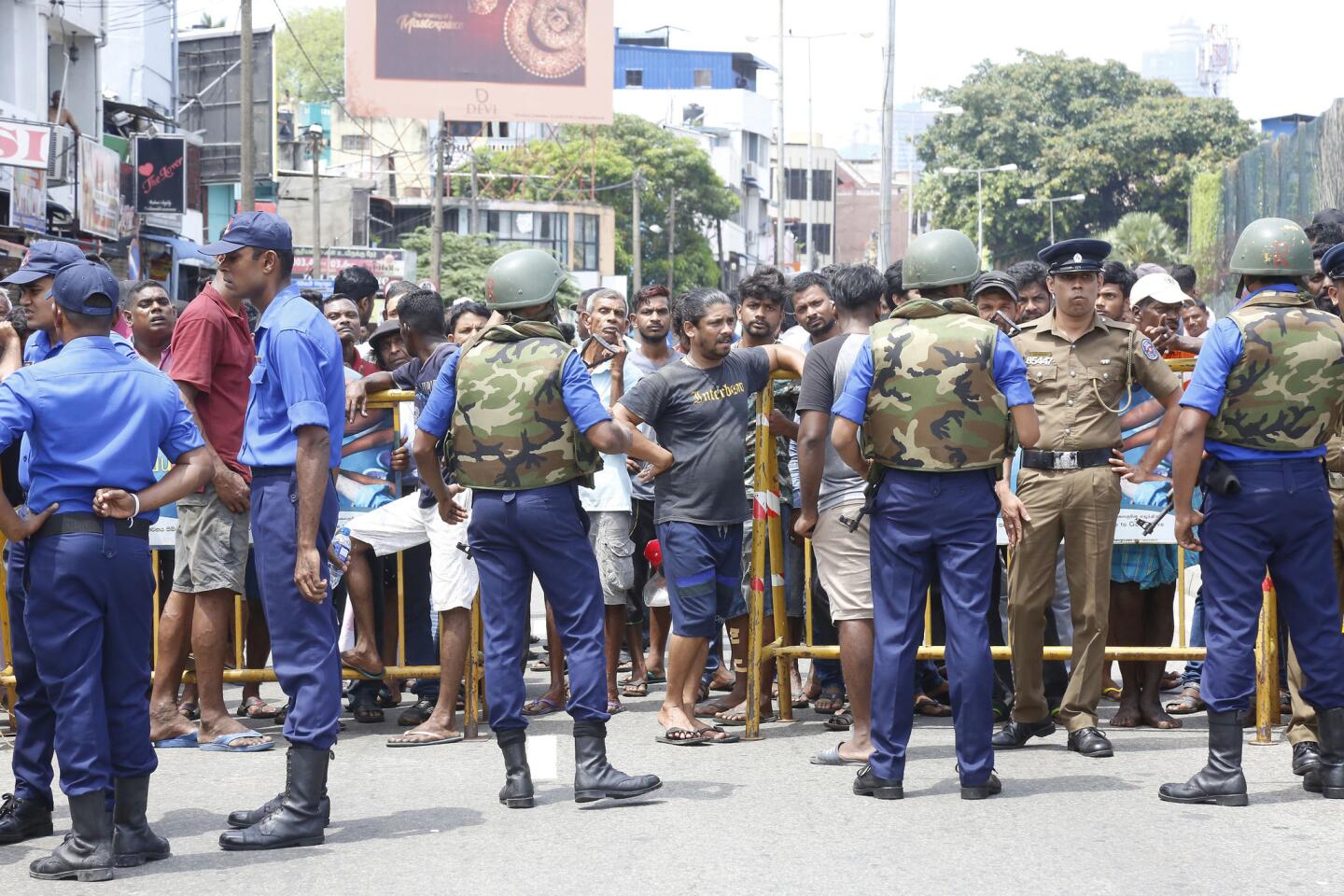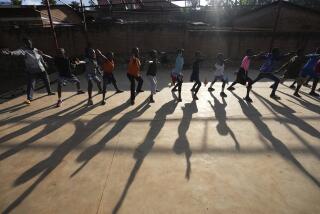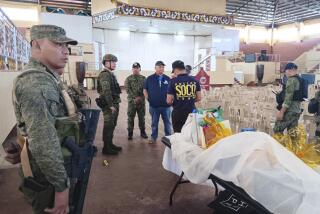‘A lake of blood’: Sri Lanka’s Christians mourn victims of Easter bombings

Almost 300 people were killed in six near-simultaneous and coordinated explosions at three churches and three hotels.
Reporting from Negombo, Sri Lanka — It was the first Easter since his mother died of cancer, and 11-year-old Chamod Shivan had planned to attend Mass at St. Sebastian’s Catholic Church with his father.
They would take their usual walk down a narrow road hugged by palm trees to the cozy neighborhood church, one of dozens in this seaside Catholic enclave, and settle into the pews under whirring fans that hung from the vaulted ceiling like spiders.
But his father, Calistus Perera, had a fever and decided to stay home. Chamod went with his aunt, who lived with them and rarely missed a Sunday service.
On Monday, white streamers were strung across the road outside the family’s tidy one-story house, where mourners spilled out of the living room and onto a porch muddied by rain. Perera folded his hands as three nuns in gray habits stopped in to offer a whispered prayer for Chamod, his only child, and his 56-year-old sister, Mary Sheila.
They were among scores killed when a suicide bomber blew himself up inside the packed church, a stalwart of a Catholic community that dates back five centuries. It was the deadliest in a coordinated series of Easter Sunday bombings targeting churches and luxury hotels across Sri Lanka that killed at least 310 people, wounded hundreds and plunged this island nation into its gravest crisis since the end of a brutal civil war a decade ago.
“I still don’t believe it,” said Perera, 62. “In all those years of war, we never saw something like this.”
The Sri Lankan government on Monday blamed a little-known domestic extremist group called National Thowheeth Jamaath for the Easter attacks. If the group is found responsible, the series of bombings would be among the first instances of Islamist terrorism in a predominantly Buddhist country with sizable minorities of Muslims, Christians and Hindus — and a history of communal violence.
Although no group has claimed responsibility, authorities arrested about 40 people and said they were investigating whether the extremist group — whose members have spouted hate speech and defaced religious statues but never conducted an attack close to this magnitude — acted with support from international terror organizations. Officials said seven suicide bombers were involved.
Sunday’s blasts also hit restaurants at three high-end Colombo hotels during breakfast, when tables were occupied by tourists on a holiday weekend. At least 40 foreigners were among those killed, according to Sri Lankan officials. The State Department said several were U.S. citizens.
The bombings also pointed to the dysfunction plaguing Sri Lanka’s bitterly divided coalition government, with Prime Minister Ranil Wickremesinghe blaming President Maithripala Sirisena and law enforcement agencies for failing to act on warnings of a terrorist plot.
Rajitha Senaratne, a spokesman for Wickremesinghe’s Cabinet, said Monday that international intelligence agencies had told Sri Lankan authorities April 4 of possible suicide attacks targeting churches and tourist sites, but that police didn’t take precautions and failed to inform the prime minister and Cabinet.
Senaratne also accused Sirisena — who is from a different party, and tried in vain to fire Wickremesinghe last year over personal and political differences — of shutting the prime minister out of national security council meetings.
“We were not kept informed about these developments in relation to the intelligence received,” Senaratne said. “We are sorry, and we apologize to the people.”
In Colombo, authorities imposed a nighttime curfew for the second straight day, with the normally crowded streets and busy seaside promenade deserted after 8 p.m. Some social media sites, including Facebook and WhatsApp, were blocked by the government for a second straight day to curb what officials said was misinformation and rumors that could incite violence.
A state of emergency went into effect early Tuesday, giving police broad powers to stop and question people, the first time those measures were imposed since anti-Muslim riots broke out a year ago.
U.S. Secretary of State Michael R. Pompeo went further than Sri Lankan officials, linking the attacks with the transnational violence of jihadist groups like Islamic State, although no such connection has been publicly confirmed.
Condemning what he called a “horrific wave of Islamic radical terror bloodshed,” Pompeo said the attacks showed the need to continue the U.S.-backed multilateral campaign against Islamic State, which has been routed from strongholds in Iraq and Syria but whose sympathizers continue to carry out attacks in other countries despite President Trump’s assertions that the group has been defeated.
“We are continuing to do real work against these evil human beings that went into places of worship on Easter Sunday,” Pompeo said. “The destruction of the caliphate was important, and it mattered, and the takedown of these threats from other geographies as well.
“But sadly, this evil exists in the world.”
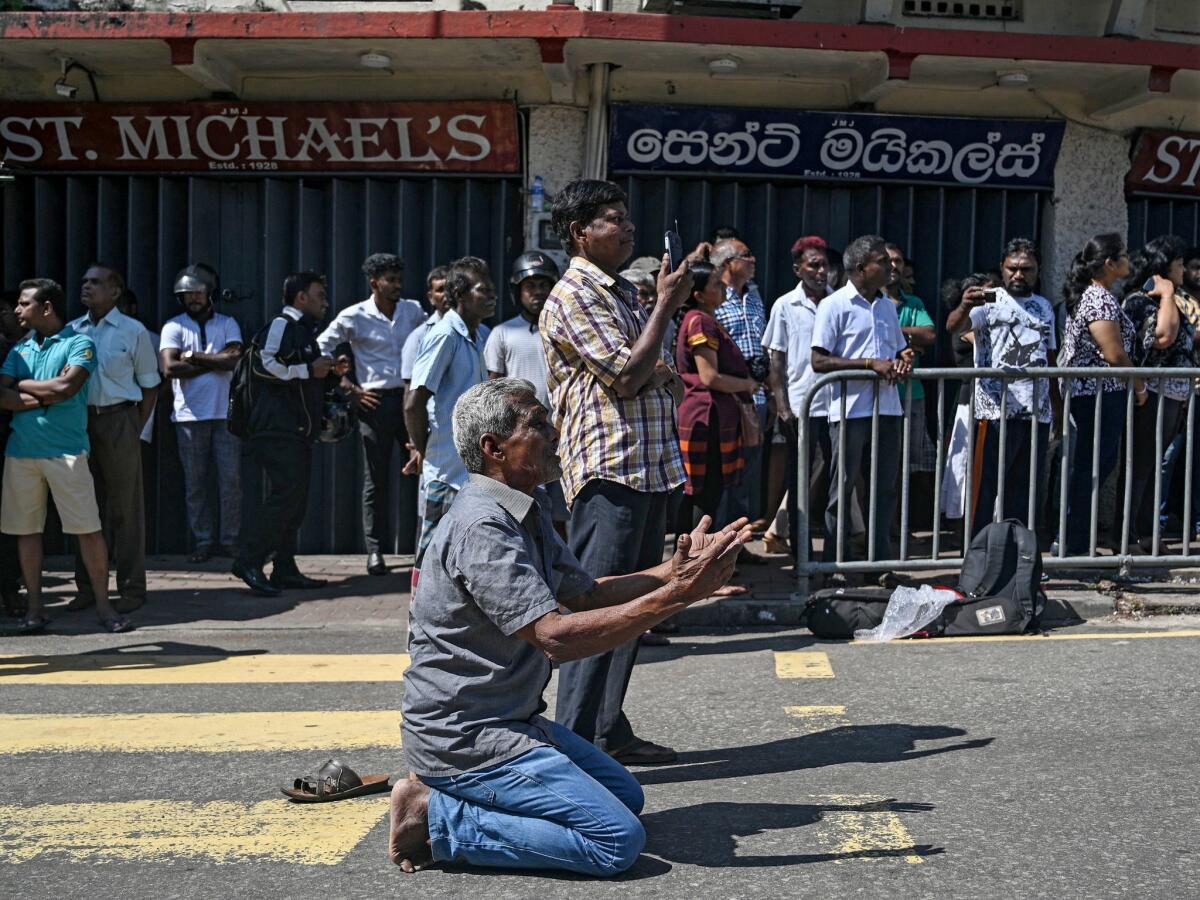
In Negombo, the local hospital said Sunday night it had received more than 104 bodies and was treating 100 wounded. The toll ticked upward Monday as injury victims succumbed to their wounds and missing worshipers were accounted for in the wreckage of the church.
The bombing left the pews in splinters and sprayed shrapnel across the canary yellow walls lined with statuettes of saints. As night fell Monday, security guards stood watch over the entrance, the holes in the church’s roof visible over the treetops.
The former fishing village — now a bustling suburb of the capital of Colombo, with beach resorts that draw international tourists — still carries the nickname “Little Rome,” a reflection of its majority-Catholic population in a country where less than 10% of the 21 million people are Christian.
Hundreds of roadside shrines beckon the faithful of Negombo. Crucifixes hang from the rear-view mirrors of taxis, and ichthuses adorn the bumpers. Some of the churches, like St. Sebastian’s, are built in the style of Portuguese settlers who began spreading Catholicism here in the 16th century.
The town of 140,000 on Monday was a picture of grief.
White streamers and white flags, the customary markings of funerals, fluttered in the breeze. Banners memorializing the dead were posted on storefronts and street corners and outside houses where family members waited quietly for bodies to be delivered from mortuaries.
“Deepest sympathies to Chamod Shivan,” read the banner outside Perera’s house, which had been placed there by the Catholic school where he was a sixth-grader. Chamod was pictured in his school uniform, his tie straight and hair parted.
“He was a good student, a good cricket player,” said Mewan Wanniarachi, 45, a family friend sitting on the porch as women served trays of tea. “The whole village is shaken.”
A few doors down, Chaminda Kamal was clearing dirt in his frontyard to accommodate chairs for the funeral for his mother-in-law, Rita Perera. The 73-year-old had been unaccounted for in the blast until hours earlier, when word came from the hospital that her remains had been found.
Kamal had raced to the church shortly before 9 a.m. when he heard the explosion, looking for his mother-in-law. He recoiled as he described what he saw inside.
“It was a lake of blood,” he said. “Bodies had just exploded.”
Inside the house, Kamal’s wife was not seeing visitors. The next day, he said, about 50 bodies would be buried in one spot near the church.
Most families in Negombo said they lived peacefully with their Buddhist, Hindu and Muslim neighbors. But tensions have flared periodically.
In 2005, Buddhist groups petitioned the country’s Supreme Court to stop the installation of a large statue of Jesus outside the municipal council building, where they said it would belittle a smaller Buddha statue that had stood there for years. The matter was settled when Christian groups agreed to move the statue by about 50 feet.
Religious nationalism has been on the rise in Sri Lanka, a legacy of the 26-year civil war between government forces and ethnic Tamil separatists, who were mostly Hindu. The government’s scorched-earth campaign in northern Tamil areas decisively ended the war in 2009 but killed tens of thousands of civilians, according to the United Nations. The army seized many Tamil lands that it continues to hold a decade later, exercising a form of de facto military rule over a beleaguered minority group.
Buddhist nationalists, emboldened by then-President Mahinda Rajapaksa and by some factions of the current government, have stepped up efforts to promote Sri Lanka’s Buddhist character, erecting temples in Tamil areas, threatening Christian converts and occasionally attacking minority groups, mainly Muslims.
Christians had been spared the worst violence, until now.
The attacks have left some in Negombo clamoring for revenge — and a return to the strongman tactics of the Rajapaksa era, during which human rights groups say suspected militants were killed, tortured and abducted, with thousands still unaccounted for.
“This shows that we have to have strong security,” said Sameera Jayagoda, a 30-year-old insurance salesman and friend of Kamal’s. “Mahinda Rajapaksa’s government completely destroyed the [Tamil rebels]. This government has damaged our security and appeased groups like the Muslims. Serious action must be taken or this will happen again.”
Rauff Hakeem, a leader of the Sri Lanka Muslim Congress and a minister in the Wickremesinghe-led government, said Muslim community leaders were shocked by the attacks and would assist security agencies in any way possible.
“This is something Islam or Muslims will never endorse,” Hakeem said, “and we condemn this in the strongest possible terms.”
Times staff writer Tracy Wilkinson in Washington and special correspondent Munza Mushtaq in Colombo, Sri Lanka, contributed to this report.
More to Read
Sign up for Essential California
The most important California stories and recommendations in your inbox every morning.
You may occasionally receive promotional content from the Los Angeles Times.
